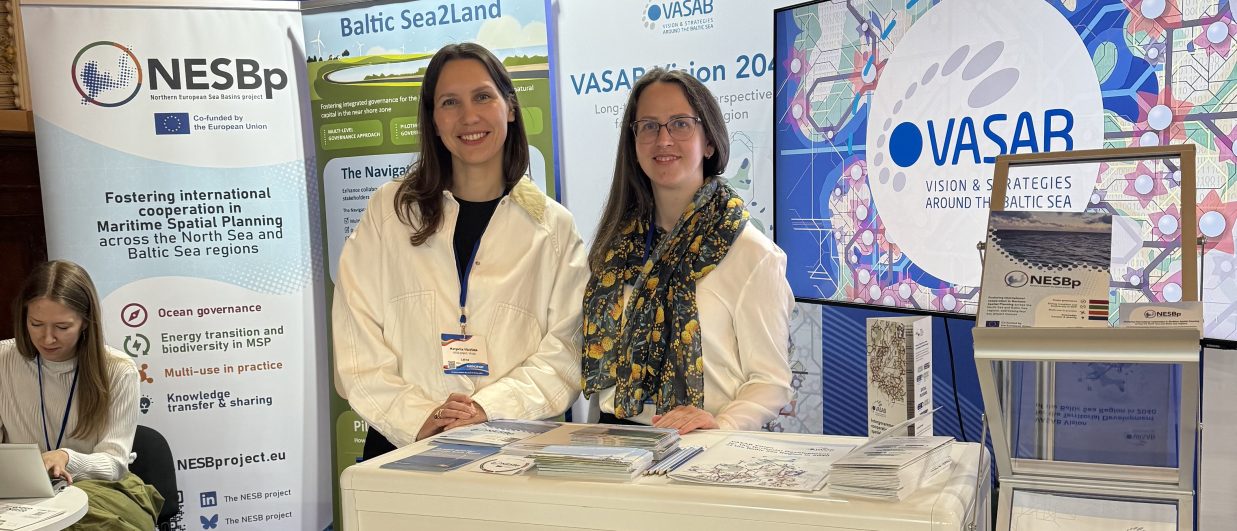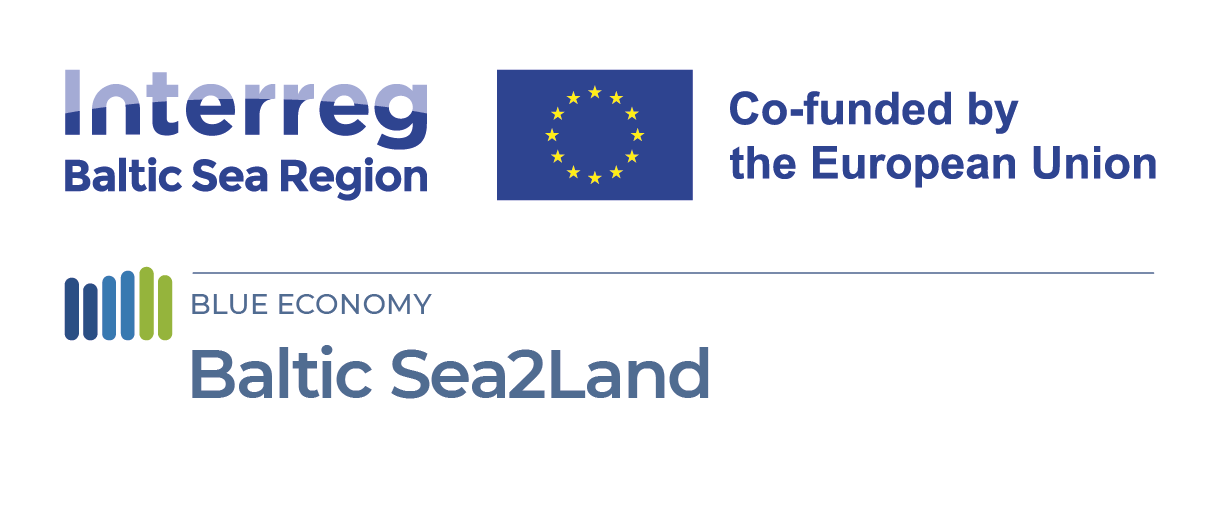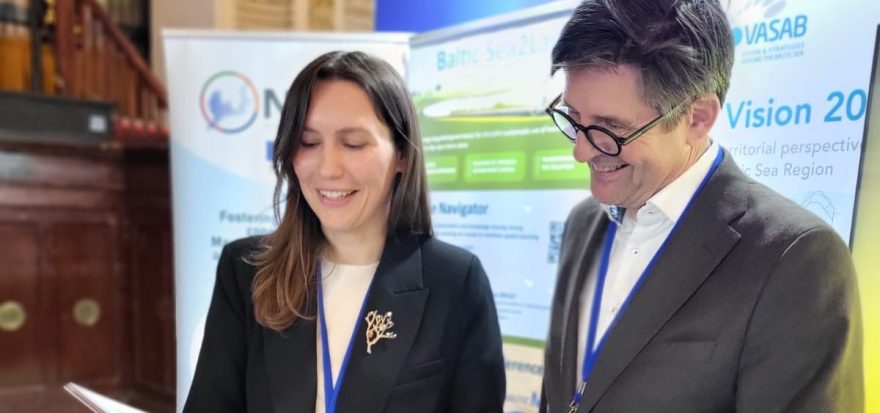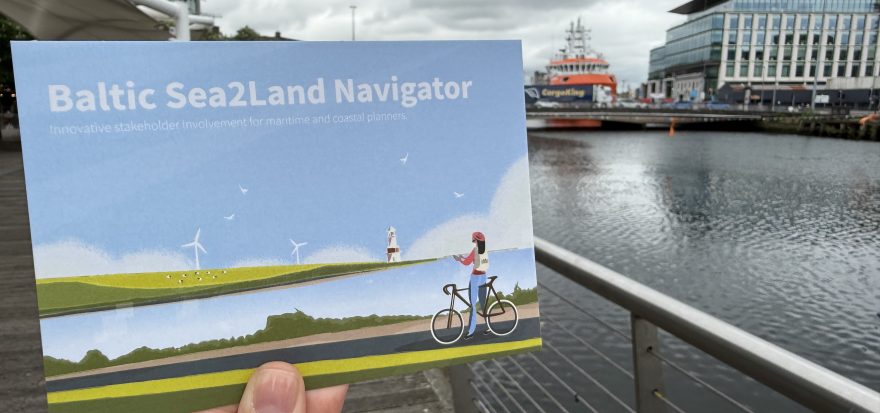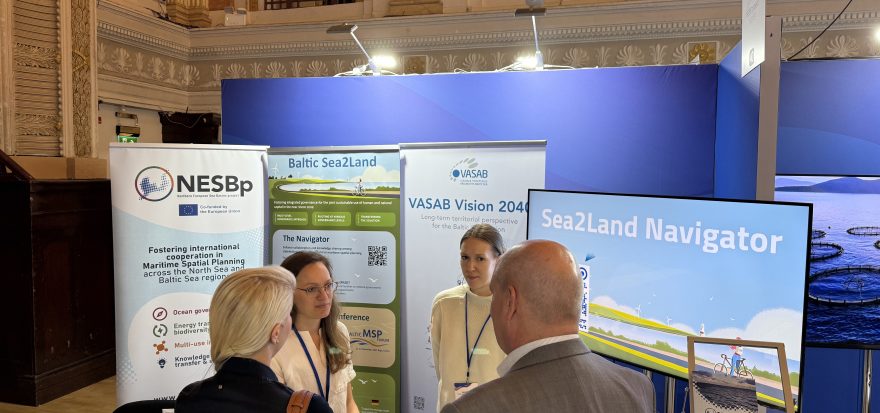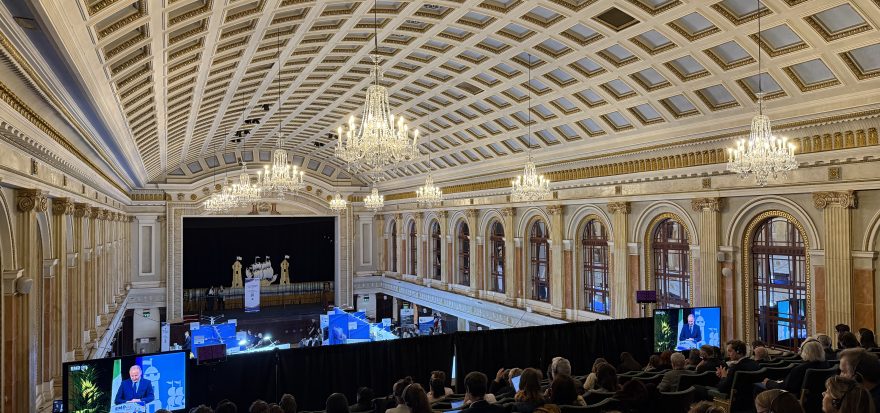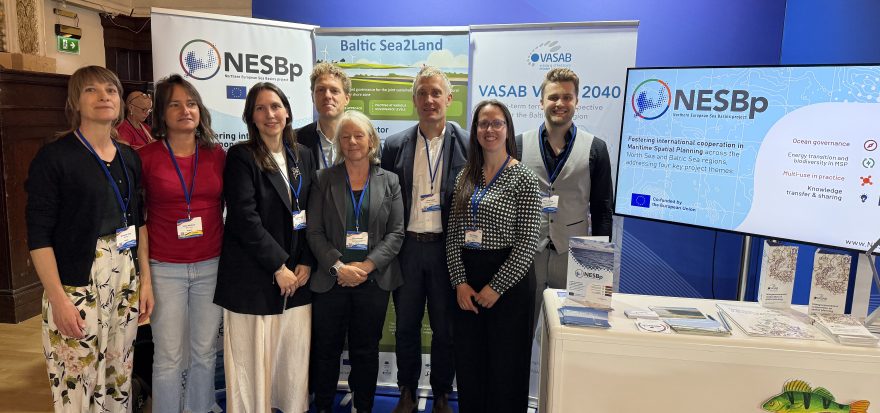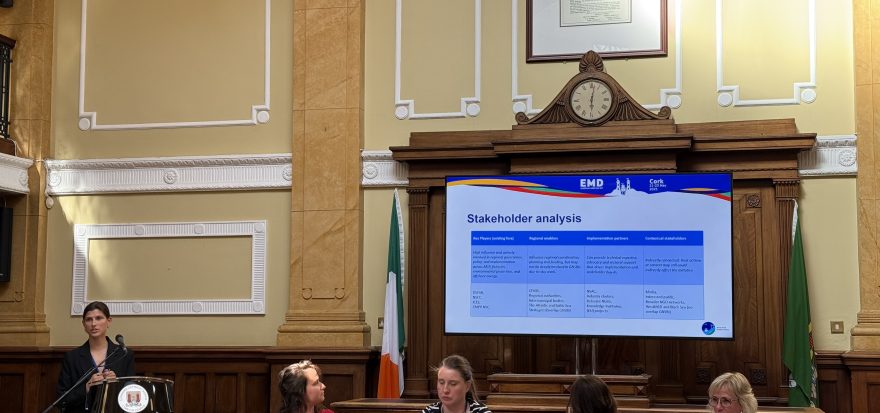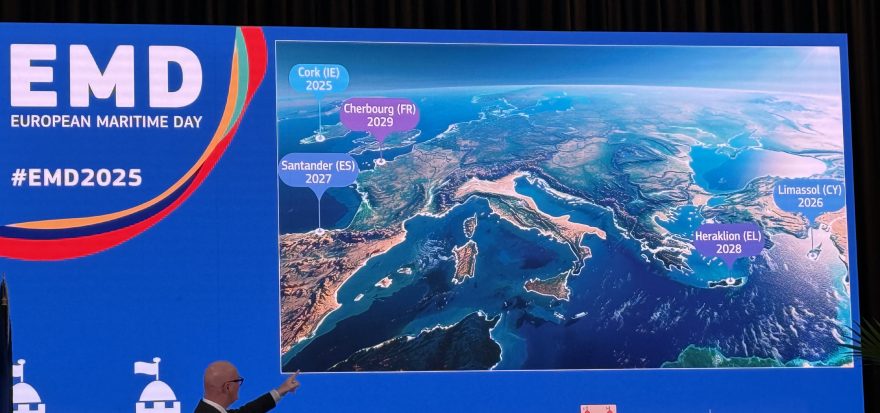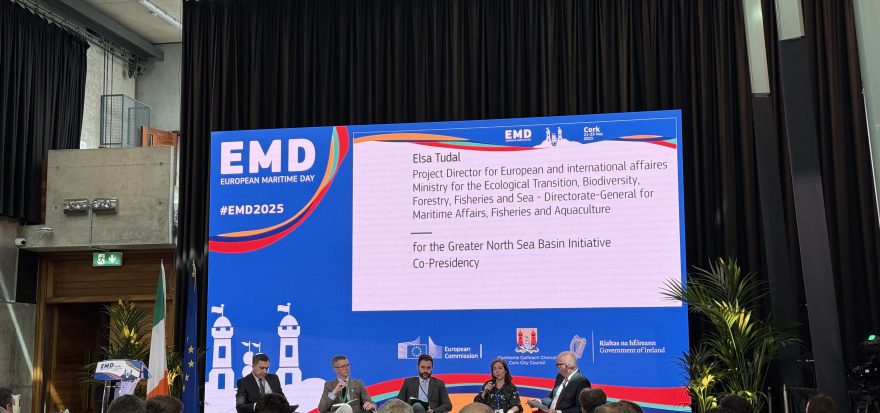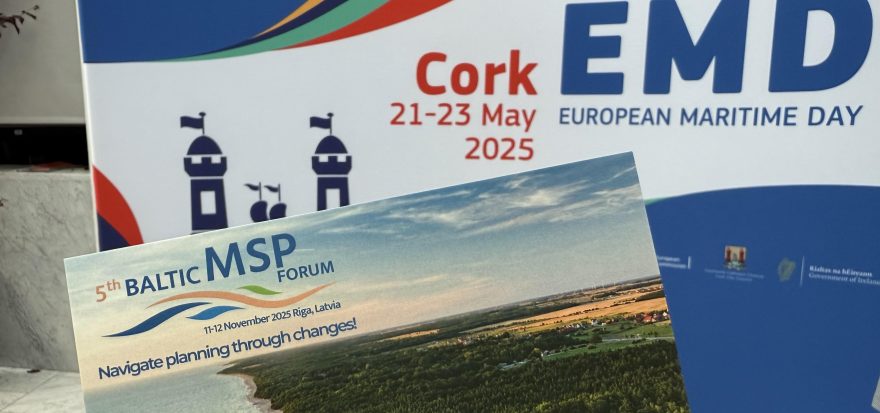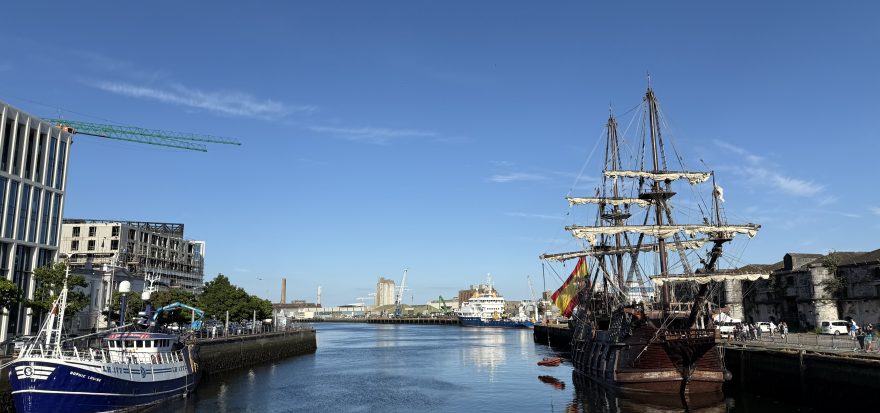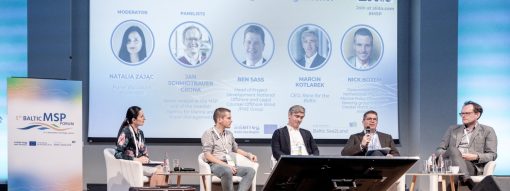One ocean, shared future: Highlights from European Maritime Day 2025 in Cork
On May 22–23, 2025, the city of Cork, Ireland, became the heart of Europe’s maritime conversation as it welcomed over 1,000 participants from across the continent and beyond for European Maritime Day (EMD). This year’s edition took on particular importance, taking place just one month before the official launch of the Ocean Pact—a bold new initiative to unite efforts for a healthy, resilient, and sustainably managed ocean.
A recurring message throughout the event was that coastal communities, whether urban centers or traditional fishing villages, are united by one ocean rather than divided by separate seas. Their continued well-being—economically, socially, and culturally—requires coordinated support, especially in the face of climate, economic, and geopolitical pressures.
The need to accelerate climate adaptation and expand offshore renewable energy was emphasized as essential to achieving Europe’s climate neutrality goals. Drawing on recent sustainability reports, experts highlighted the importance of scaling up wind, wave, and other marine renewables, while recognizing the increased spatial demands this growth will bring. Strategic planning will be needed to balance these developments with the protection of marine ecosystems and traditional livelihoods.
It was stressed that as Europe’s blue economy grows, so must its commitment to environmental protection and cultural heritage. Safeguarding sustainable fisheries remains critical, but the door must also be open to new technologies and approaches, including wave energy, nature-based solutions (NBS), and innovative concepts like Maripark. The message was clear: a healthy sea and responsible marine use are the keys to our collective resilience.
Throughout the sessions, the critical role of security, monitoring, and data was consistently emphasized. Effective ocean governance hinges on evidence-based decision-making, which in turn requires reliable, consistent, and high-quality marine data. Speakers underscored the urgency of enhancing robust surveillance systems and promoting transparent, data-driven policies at both national and EU levels.
The value of a macro-regional and sea basin approach was repeatedly emphasized. These strategies, which bring together cross-border and cross-sector collaboration, were credited with delivering concrete results across governance, environment, society, and the blue economy.
Equally central was Maritime Spatial Planning (MSP)—highlighted in nearly every session as a vital, integrative tool. MSP’s strength lies in early stakeholder engagement, political coordination, and its foundation in the best available scientific knowledge. It continues to be a pillar of Europe’s ocean management strategy.
VASAB was glad to participate in European Maritime Day 2025, contributing to the dialogue and reaffirming its commitment to sustainable maritime and coastal development in the Baltic Sea Region and beyond.
In addition to advancing its stakeholder-driven strategic framework—VASAB Vision 2040, a long-term perspective for the region’s territorial development—VASAB actively supports the implementation of transnational cooperation projects. Notable examples include Baltic Sea2Land, which focuses on the sustainable development of coastal areas, and the NESB project, which promotes MSP as an integrative and adaptive tool, enhances cross-sea basin dialogue, and strengthens the sea-basin approach across both the North Sea and Baltic Sea regions.
In 2026, the maritime community will gather once again — this time in Limassol, Cyprus — for European Maritime Day 2026.
